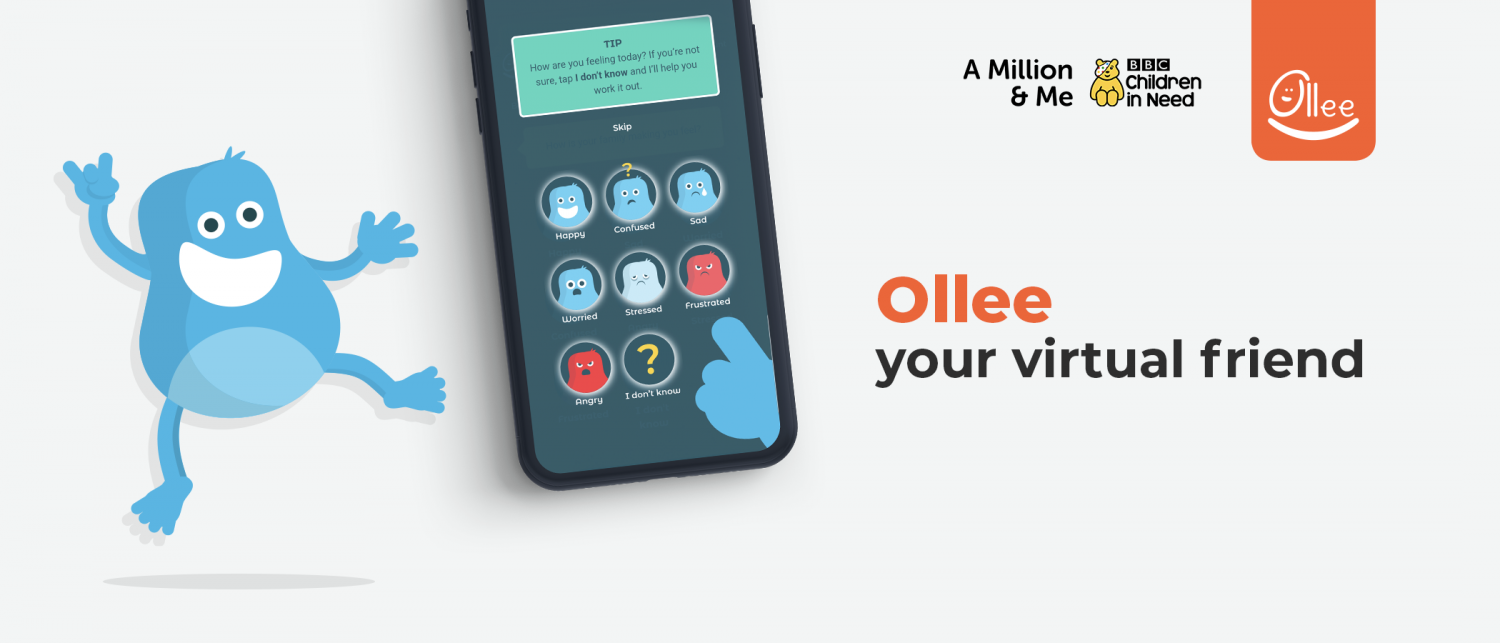
Low mood – or something more?
As a parent, you know your child best. But, it can still be hard to work out whether what your child is experiencing is a low mood or something more serious.
Ollee, a new app developed by Parent Zone and funded by BBC Children In Need’s A Million & Me programme, is designed to help parents spot the early warning signs of when their child may need emotional help.
A virtual friend that will help children aged 8-11 to communicate their feelings, Ollee offers advice about a range of subjects – school, family, friends, their world – and enables them to share this advice with trusted adults.
Parents are also able to use Ollee for advice about problems they think their child might be experiencing – and then share a child-friendly version of this advice with them.
Here, Clinical Psychologist Dr Asha Patel tells us the differences between low mood and depression, signs and symptoms to look out for and how parents can help.
What is a low mood?
Our moods change on a daily basis and feeling low in mood or “feeling down” is something many children experience for short periods of time.
Some common signs of low mood are feeling irritable, wanting to spend time alone, difficulty concentrating and changes in eating habits.
Talk to your child about how they are feeling and let them know that their mood will fluctuate. Most importantly, reassure them that it is OK to feel low sometimes.
You can help your child by:
-
Encouraging them to explore how their bodies feel when they are feeling down, so they can acknowledge their feelings and communicate them to an adult if they want to.
-
Explore different strategies (i.e. exercise, music, talking, arts) that they can use to help their bodies feel calmer.
When could it be depression?
Low mood can be attributed to hormones, lifestyle, food choices, loneliness or a lack of stimulation. It is usually temporary and is normal for everyone to experience.
Depression is different. It is long-term, continuous and disrupts almost every aspect of daily life. If a number of signs and symptoms have persisted for more than two weeks, it may well be depression rather than a low mood.
Keeping a written record of your child's moods, sleep and food intake can help track symptoms, especially as children may not know how to communicate the way they are feeling.
Common signs and symptoms of depression
-
Lacking energy, feeling exhausted, trouble sleeping or sleeping too much.
-
Neglecting themselves (e.g. not showering).
-
Finding it hard to think clearly or make decisions.
-
Feeling tearful all the time, struggling to cope with everyday tasks.
-
Not wanting to talk to or be with people, or do things they usually enjoy.
-
Change in eating habits – eating more or less.
This is where access to professional support is really important. Your GP is a key first line of support, but it is also worth asking them about different helplines for you and your child. You might also want to talk to school to see how your child can be supported to maintain their education.
While it is not possible to predict how long depression will last, the cloud does lift eventually. With the right help, your child will find new interests and ways of living with their feelings and start enjoying life again.
Find out more about how Dr Asha Patel is supporting children with their emotional and mental health needs, by visiting Innovating Minds CIC.
Ollee is available now as an app or via a web browser. Try it here.
